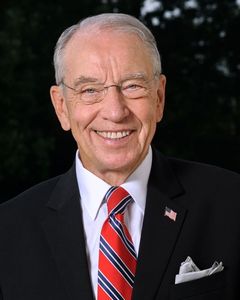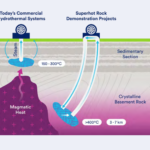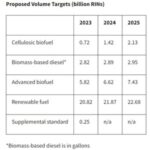Grassley introduces bill to withdraw EPA’s proposed eRIN program
Energy Disrupter
ADVERTISEMENT
Sens. Chuck Grassley, R-Iowa, and John Cornyn, R-Texas, on May 18 introduced a bill that aims to prevent electric vehicle (EV) manufacturers from participating in the Renewable Fuel Standard and would direct the U.S. EPA to withdraw its proposed eRIN program.
The EPA in December issued a proposed rule that aims to set RFS renewable volume obligations (RVOs) for 2023, 2024 and 2025. The rulemaking, referred to as the “set” rule also includes a long-awaited regulatory provision to allow renewable identification numbers (RINs) to be generated for certain types of renewable electricity used to fuel vehicles (eRINs). Under the proposed rule, the eRIN program would be limited to eligible sources of biogas-based electricity. The EPA’s proposed approach for eRINs would allow vehicle original equipment manufacturers (OEMs) to generate eRINs based on the light-duty electric vehicles they sell by establishing contracts with parties that produce electricity from qualifying biogas.
The EPA indicated it would open the RFS program to eligible source of biomass-based electricity as part of a rulemaking finalized in 2010 to implement updates to the program as directed by the Energy Independence and Security Act of 2007. Congress also indicated its intent to allow certain electricity producers to participate in the RFS program through language included in the Consolidated Appropriations Act of 2021. The EPA, however, has failed to approve any eRIN pathways under the RFS despite an extensive backlog of applications.
The RFS Power Coalition, a coalition that includes the Biomass Power Association, American Biogas Council and the Energy Recovery Council, has been advocating for adoption of an eRIN program for several years. The groups, however, have urged the EPA to allow biogas power producers to generate eRINs themselves, as liquid biofuel producers currently do under the RFS.
Several ethanol groups weighed in on the eRIN provisions of the proposed “set” rule. The Renewable Fuels Association said it agrees that there can be a role in the RFS for eRINs from qualifying renewable biomass, but urged the EPA to maintain a level playing field for all renewable fuel pathways. In comments filed with the EPA, the RFA said the proposed regulatory program for eRINs is not equitable, and specifically criticized the agency’s proposal to let EV manufacturers generate eRINs, calling it inconsistent with the existing system for liquid and gaseous fuels that currently participate in the program.
Similarly, the American Coalition for Ethanol said it is not opposed to eRINs per se, but advocated against the EPA’s plan to allow original equipment manufacturers (OEMs) generate RINs. In comments submitted to the agency, ACE urged the EPA to allow eligible biomass-based electricity producers to generate eRINs, in line with how RINs are generated by liquid and gaseous biofuel producers under the program.
Grassley’s bill, titled the “No Fuel Credits for Batteries Act,” or S. 1741, was referred to the Senate Committee on Environment and Public Works following its introduction. To date, only Cornyn has signed on to cosponsor the bill.
“The EPA’s proposed E-RINS rule would reduce demand for cleaner, cheaper biofuels for the vast majority of vehicles on the roadway and create a brand new cash stream for electric vehicle manufacturers,” Grassley said. “My bill would preserve the integrity of the Renewable Fuel Standard by preventing electric vehicle makers from generating credits that, under law, are reserved for renewable fuel producers.”
“The Biden administration is determined to subsidize the electric vehicle industry by any means necessary, and their latest proposal proves that,” Cornyn said. “ Our bill would put a stop to this rule and ensure only transportation fuels are covered under the Renewable Fuels Standard, and I’m glad to support it.”
A full copy of the bill can be downloaded from Grassley’s website.

















